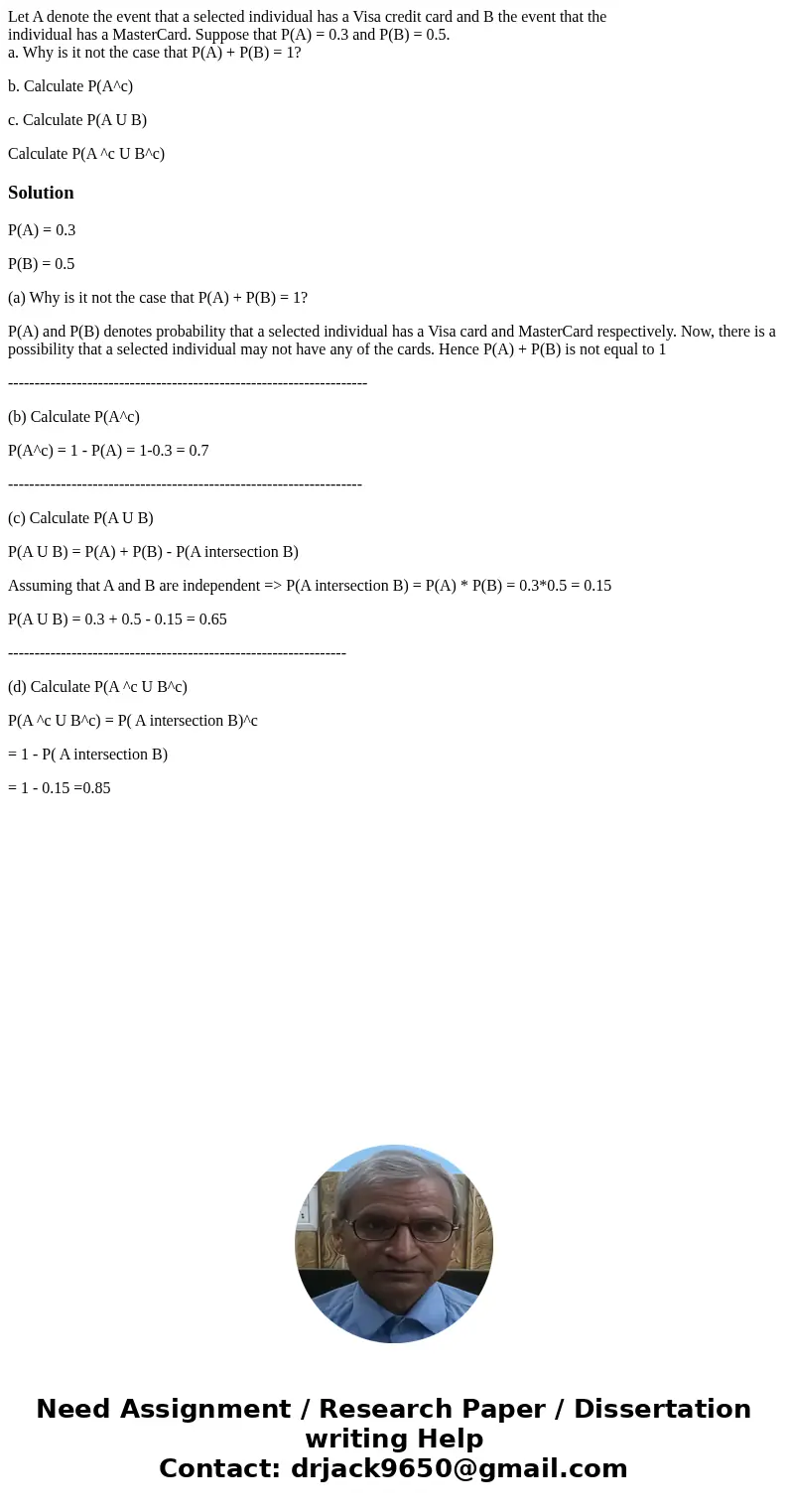Let A denote the event that a selected individual has a Visa
Let A denote the event that a selected individual has a Visa credit card and B the event that the
individual has a MasterCard. Suppose that P(A) = 0.3 and P(B) = 0.5.
a. Why is it not the case that P(A) + P(B) = 1?
b. Calculate P(A^c)
c. Calculate P(A U B)
Calculate P(A ^c U B^c)
Solution
P(A) = 0.3
P(B) = 0.5
(a) Why is it not the case that P(A) + P(B) = 1?
P(A) and P(B) denotes probability that a selected individual has a Visa card and MasterCard respectively. Now, there is a possibility that a selected individual may not have any of the cards. Hence P(A) + P(B) is not equal to 1
--------------------------------------------------------------------
(b) Calculate P(A^c)
P(A^c) = 1 - P(A) = 1-0.3 = 0.7
-------------------------------------------------------------------
(c) Calculate P(A U B)
P(A U B) = P(A) + P(B) - P(A intersection B)
Assuming that A and B are independent => P(A intersection B) = P(A) * P(B) = 0.3*0.5 = 0.15
P(A U B) = 0.3 + 0.5 - 0.15 = 0.65
----------------------------------------------------------------
(d) Calculate P(A ^c U B^c)
P(A ^c U B^c) = P( A intersection B)^c
= 1 - P( A intersection B)
= 1 - 0.15 =0.85

 Homework Sourse
Homework Sourse